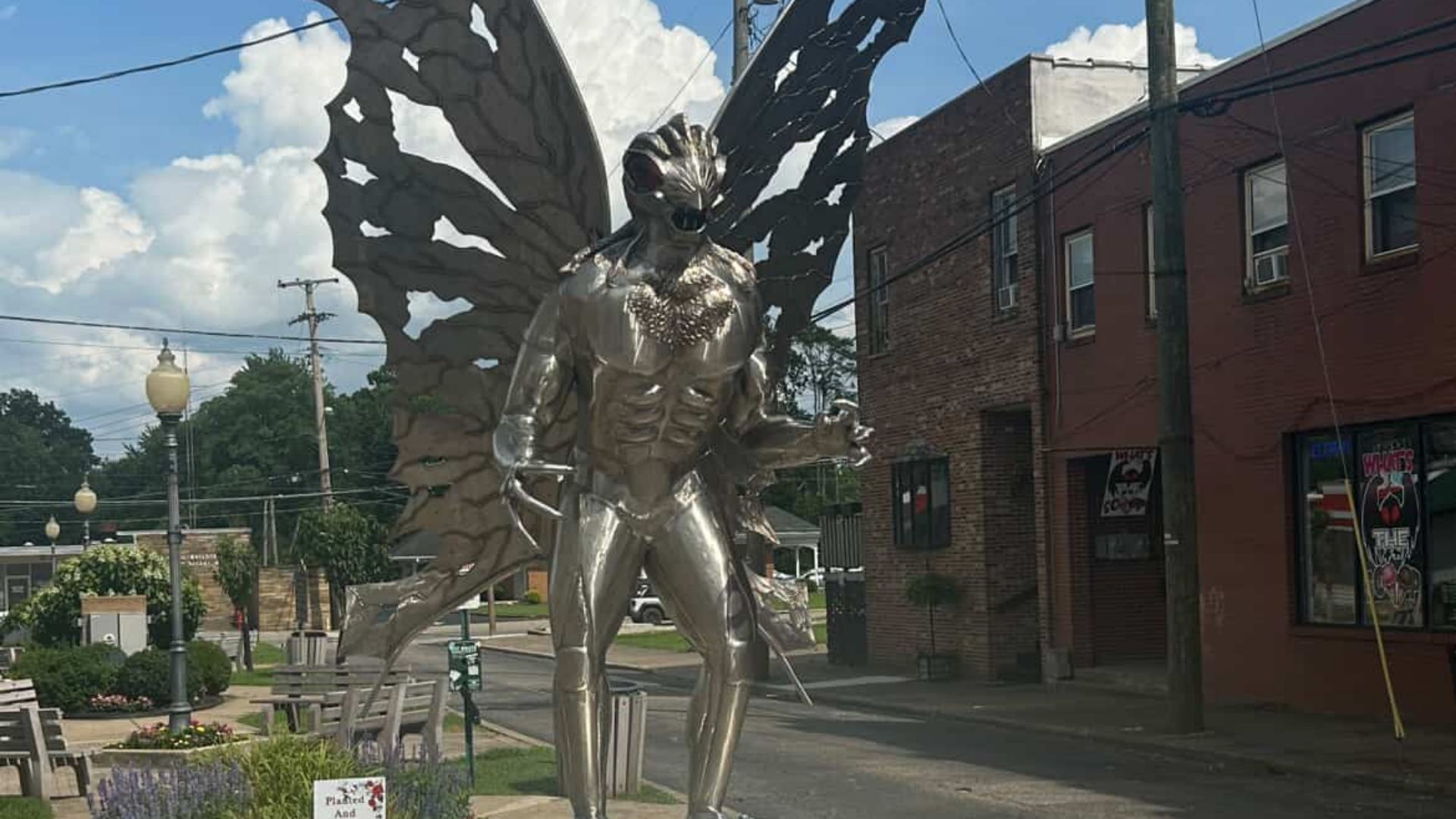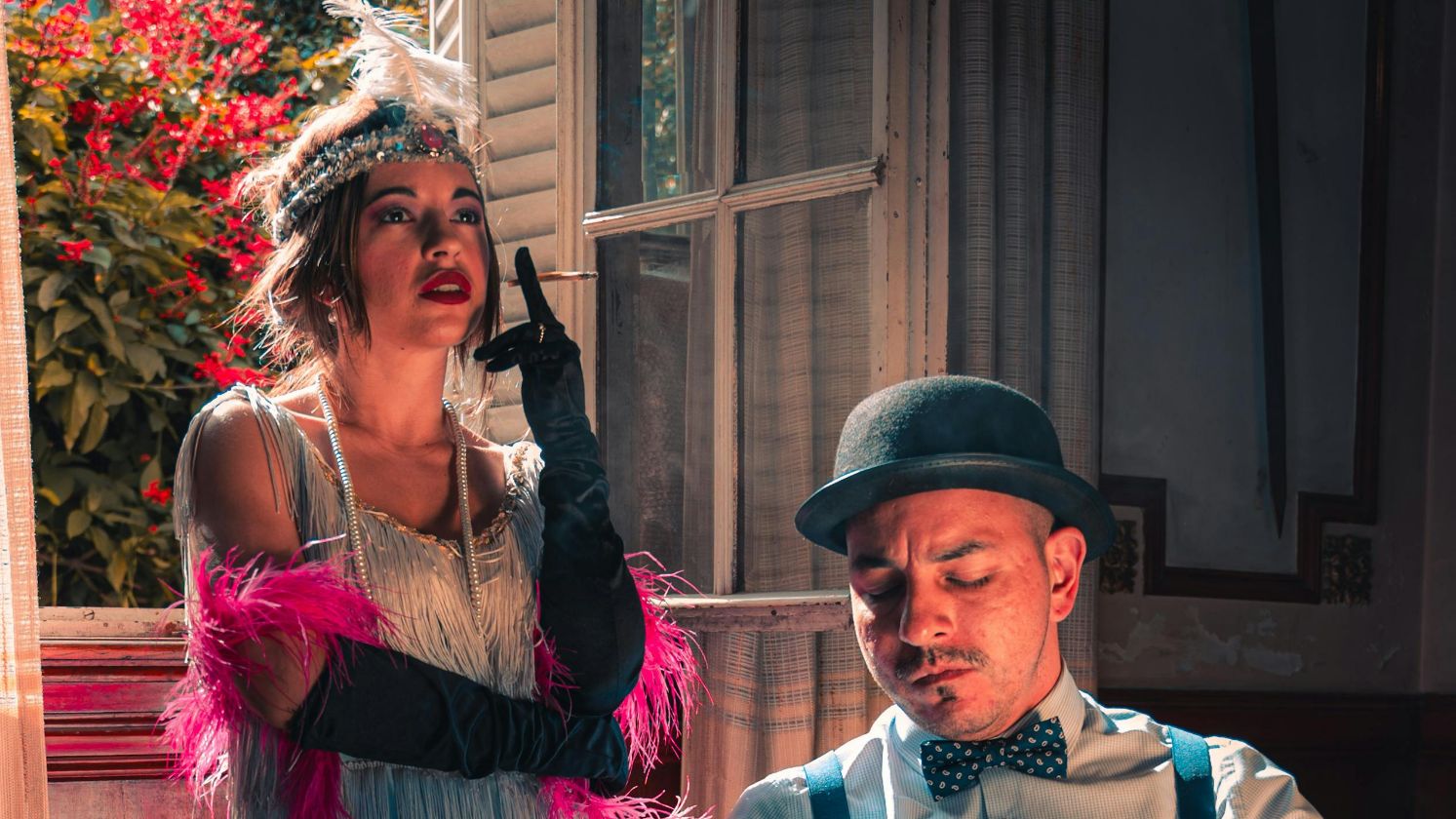Slang That's The Bee's Knees
Just like fashion, slang goes through trend cycles so that everything that was old is new. If you've ever swooned over a silver screen heartthrob, razzed a friend, or gone on a blind date, then you've used some Roaring Twenties slang without knowing it! Since we're halfway through the New Twenties, here are 20 weird and wacky terms for you to use.
1. Applesauce
Applesauce was used as an inoffensive expletive similar to the way baloney is used. Applesauce was unpopular when introduced to menus in the 1920s, which is probably why it's a stand-in for nonsense. You can say "aw, applesauce" when something doesn't go your way.
2. Bank's Closed
If someone says that the bank's closed, they mean that they're not in the mood for kissing or heavy petting. Cheeky partners may ask about a cash or check, meaning if kissing is in the cards for later.
3. Bimbo
This one's funny in hindsight. Today, a bimbo is a woman of seemingly-low intelligence, but in the early '20s, a bimbo was a tough guy or strong man. If you used this one in casual conversation today, you'd probably be met with blank stares.
4. Cat's Pajamas
There's a chance you've heard this one before; if something is the cat's pajamas (or the bee's knees), it's outstanding. This term gained popularity in the US in 1922, but was believed to have been used a century earlier, when a tailor named E.B. Katz designed silk pajamas for royalty and aristocracy.
5. Chicago Overcoat
If there's one overcoat you don't want to wear, it's a Chicago overcoat. To wear one of these means to be sealed up in a coffin, sleeping the big sleep. Chicago had a rough reputation in the Jazz Age thanks to rumrunners during prohibition and gangsters like Al Capone.
6. Giggle Water
If you've ever met (or been) a giggly drunk, the meaning of giggle water should come as no surprise. Since the sale and brewing (but not consumption) of adult beverages was made illegal under the Eighteenth Amendment, those who imbibed had to be discreet. Typically, you could find a glass of giggle water at a speakeasy.
 Unknown authorUnknown author on Wikimedia
Unknown authorUnknown author on Wikimedia
7. Glad Rags
Wearing your glad rags was similar to putting on your Sunday clothes, your dressiest best. For a flapper, glad rags would probably include a drop-waist dress, pearl necklace, and cloche hat.
 George Grantham Bain Collection (Library of Congress) on Wikimedia
George Grantham Bain Collection (Library of Congress) on Wikimedia
8. Handcuff
Joking about marriage being a prison is, sadly, nothing new, but people in the 1920s took it a little farther. A handcuff was an engagement or wedding ring, while someone out on parole is recently divorced. Somewhat confusingly, an actual handcuff, like one you may be clapped in for drinking hooch, was called a bracelet.
9. Jake
Who's Jake? We don't know, but he's alright with us. If everything is jake, it means everything's great. A slightly zanier alternative is copacetic.
10. Lettuce
In the 1920s, lettuce wasn't just a leafy green, but currency. Lettuce was a roll of bills that one could blow on nightclubs and jewels. Another synonym was cabbage.
11. Meat Wagon
Just like you don't want to wear a Chicago overcoat, you want to avoid the meat wagon at all costs. This was a term for an ambulance, which may rush you to a hospital if you've been hit by Chicago lightning.
12. Moll
Every Clyde needs his Bonnie, and every gangster needed a gun moll. These women weren't just the girlfriends on gangsters, they were often accomplices or criminals themselves. "Gun" was British slang for thief, while "Moll" was a nickname for Mary used by women of...let's say immorality.
13. Oliver Twist
A person who tears up the dance floor is a regular Oliver Twist. The preferred dances of the 1920s were the Lindy Hop and Charleston. Funnily enough, the twist dance didn't start until the late 1950s.
 Walery, Polish-British, 1863-1929 on Wikimedia
Walery, Polish-British, 1863-1929 on Wikimedia
14. Omnibibulous
Someone known for drinking bathtub gin would likely describe themselves as omnibibulous. This meant that they were able to drink anything at anytime or anyplace.
15. Rattletrap
A rattletrap is a rather cruel term for a talkative woman. A person of any gender who was known to talk excessively would be accused of running one's gums. If you wanted to tell someone to stop talking, you could tell them to shut their trap.
16. Sheba
As in Queen of, a sheba was a stylish and attractive woman. The term was popularized after Betty Blythe played the titular role in 1921's The Queen of Sheba, wearing some rather sexy costumes. A sheba could also be a seductive woman, called "the end of every man's desire."
 Unknown authorUnknown author on Wikimedia
Unknown authorUnknown author on Wikimedia
17. Sheik
In contrast to a sheba, a sheik was "a romantic he-man" who believed himself to be irresistible to the ladies. This term was popularized by Rudolph Valentino's now-problematic role in the 1921 film The Sheik. Many girls carried a torch for Valentino.
18. The Real McCoy
If something's the real McCoy, it's the genuine article. This term actually dates back to the 1850s in Scotland, when it was used as a slogan for a whisky distiller, however, it only made the leap over the puddle in 1908, probably thanks to innovations in steamship travel.
19. Weeping Willow
No, a weeping willow is something who has overactive tearducts, but we can see how you'd get confused. Rather, this referred to be pessimist (also called a crepehanger) or a killjoy who always ruins the fun. An extremely proper woman who spoils the moment was also called Mrs. Grundy.
20. Zozzled
Blotto. Corked. Pickled to the gills. Ossified. What do all these words have in common? If you're clever, you should be able to pick up that all these words, like zozzled, refer to someone who's been hitting the hooch a little too hard. Savvy?
KEEP ON READING

The Moth, The Man, The Legend: 20 Facts About Mothman
There's Something In The Sky. Do you know the Mothman?…
By Ashley Bast Sep 22, 2025
10 Cryptids You Don't Know About & 10 You've Probably…
Do You Believe In Bigfoot?. Cryptids are often interesting subjects…
By Breanna Schnurr Sep 22, 2025
10 Reasons Napoleon Won Battles & 10 Reasons He Lost…
The Strange Genius And The Fatal Flaws. Napoleon Bonaparte looms…
By Cameron Dick Sep 22, 2025
20 Pieces Of Jazz Age Slang And How To Use…
Slang That's The Bee's Knees. Just like fashion, slang goes…
By Ashley Bast Sep 22, 2025
20 Risky Moves By U.S. Presidents That Paid Off
The Louisiana Purchase Really Worked Out. Throughout history, U.S. presidents…
By Rob Shapiro Sep 22, 2025
England's Most Cursed King
Harold Godwinson was born into power and prestige. But when…
By Noone Sep 19, 2025

















